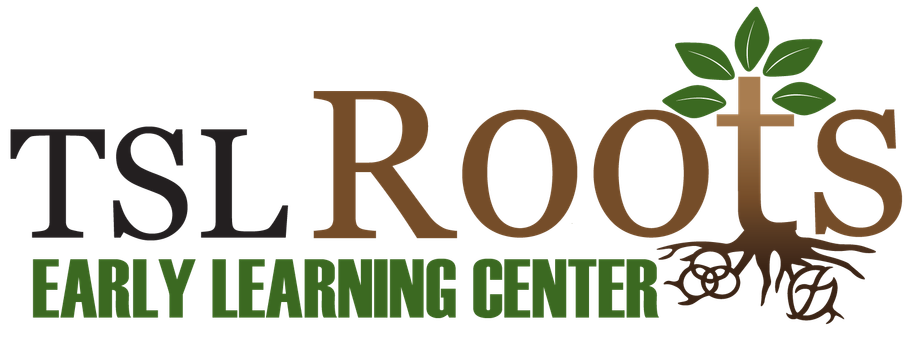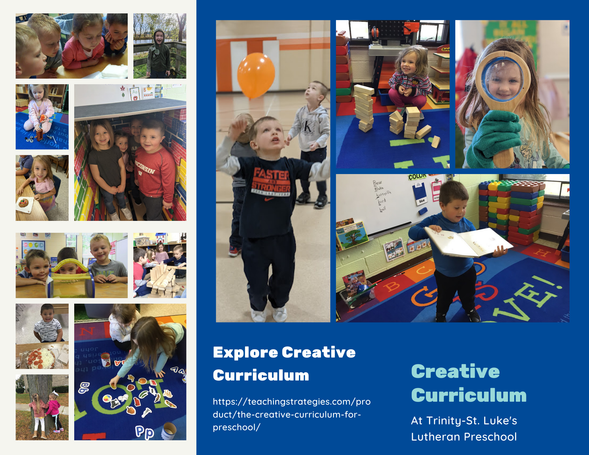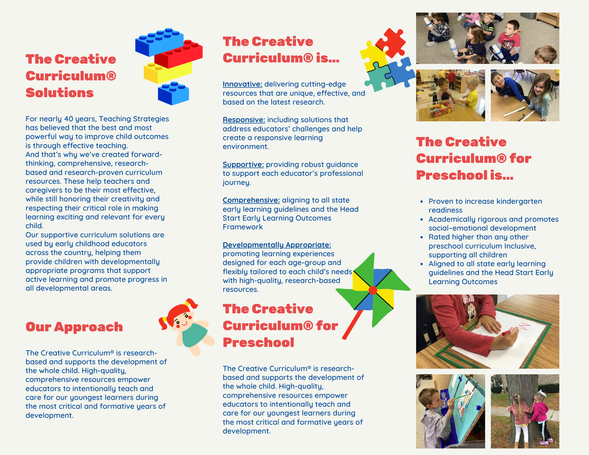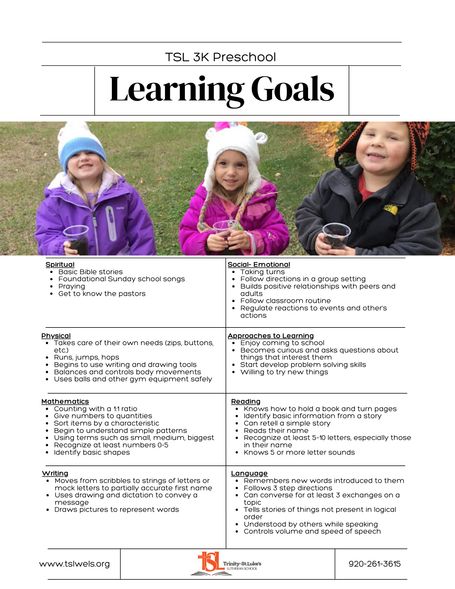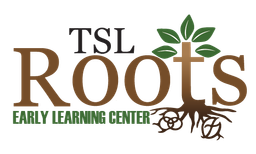
Curriculum
At TSL Roots Early Learning Center, we have two major departments of our curriculum programs. With our center being a ministry of Trinity and St. Luke’s Lutheran Churches, We have a religious curriculum program. We also strive to provide quality child care that focuses on multiple domains of learning and development. Therefore we do have a child development curriculum program too.
For our religion curriculum we use ChristLight for 3 Year Olds.
For our developmental curriculum we will use Creative Curriculum.
Philosophy of Education
Following the research, studies, and theories by leaders in both education and early childhood development, we can raise our student’s experience with us to a higher level of developmentally appropriate practices. Abraham Maslow’s hierarchy of needs, Erik Erikson’s Lifespan Theory of Socioemotional Development, Jean Piaget’s stages of development , Lev Vygotsky’s zone of proximal development , and John Dewey’s hands-on approach to learning help us learn about how children develop. We realize that as children grow, children develop in many different domains and at different rates (NAEYC, 2020). However, children 3 and under learn well through hands-on, play based learning (Bodrova & Leong, 2003) with teachers who are knowledgeable about child development and psychology (NAEYC, 2019). Children need open-ended materials (Frede & Ackerman, 2007 ) in a warm and nurturing environment where caring and loving teachers will assist them in expanding their knowledge (Follari, 2018, pages 50, 54) of the world that God has made for us.
Criteria
- Values and Faith: The curriculum, lessons, and materials selected matches the faith and value system of our Biblical teachings.
- Role of the Teacher: The curriculum will encourage and equip the teacher to balance between giving enough information and guiding students to their discoveries.
- Domains of Learning: Learning goals span across multiple domains and aims for whole child instruction and integration of both learning domains and academic subject areas.
- Aligned with State Early Learning Standards: Curriculum goals align with Wisconsin Early Learning Standards (WMELS).
- Differentiation: The curriculum will supply, encourage, and support differentiation since all learners are in different points on their journey of learning and growing
- Authentic Assessment: Curriculum encourages and supports portfolios paired with developmental progress cards to be used at scheduled intervals throughout the year.
- Research Evidence: Curriculum will have third party research done to show the benefits of the program.
- Professional Development: Curriculum will support teachers with professional development and training opportunities.
- Required Materials: The curriculum will focus on affordable and open ended materials.
- Parent Involvement: Curriculum will support parent involvement that helps students progress in their learning goals
- Developmentally Appropriate Practice: Classrooms schedules, lesson plans, teachings and assessment will all reflect developmentally appropriate practices as defined in the NAEYC Positional Statement Document dated April 2020 (NAEYC, 2020).
We need your consent to load the translations
We use a third-party service to translate the website content that may collect data about your activity. Please review the details and accept the service to view the translations.
